The motivation for this piece comes from Editor-in-Chief Shekhar Gupta’s recent article in Indian Express, ‘Disarming Kashmir’ of December 7. In his inimitable style, he has built up a case that with peace and normalcy returning on the ground, there is scope for a partial thinning out of the Army presence in the Valley and some symbolic dilution of the Armed Forces Special Powers Act (AFSPA). In the process, he has also made certain observations; like presence of half a million Indian soldiers with most illiberal of laws fighting in the Valley; a new factor having originated in the Indian policy making by way of a veto power for the Army. All these merit serious analysis to reach right conclusions.
The issue of Kashmir provides a wicket, which in cricketers’ parlance, is called a spinner’s delight. It is so very easy to give twists and turns to these issues, however fickle the supporting facts. To get the right answers it is essential to get the basic facts right. The myth about the presence of half a million Army boots in the State is woefully off the mark. The Army has for quite some time now adopted a posture of more emphasis towards maintaining the sanctity of the Line of Control and Counter Infiltration grid and is already very thin in the hinterland. Only reserve brigades of the three Corps in J&K are deployed in the hinterland on the counter-insurgency grid with a strength of 10,000 and operational availability of 5000-6000 troops. The main counter-insurgency force in the hinterland are 62 Battalions of the Rashtriya Rifles; with approximately 50-60,000 troops available for operations. Thus, optimally only 55,000 - 60,000 army troops are operating in the in the hinterland at the very maximum, which is a far cry from the often quoted figure of half a million plus force, a difference of nearly 1 to 10. CRPF and J&K police provide the additional effort. By quoting erroneous figures, we only end up providing a handle to our adversaries.
Yes, the proxy war situation has improved considerably; the majority of leadership of Lashkar-e-Toiba, Hizbul Mujahideen and Jaish-e-Mohammed and the terrorists training camps in the hinterland have been vanquished but there are still a large number of them in the staging areas across the Line of Control, awaiting their turn to infiltrate. Even more importantly and, at the strategic level, the overall security matrix in Afghanistan is likely to have direct implications for us. As the American-NATO forces prepare to withdraw in 2014, a lot of uncertainty will prevail. If Pakistan has her way and the Taliban can get even partial control of Afghanistan, then it is quite on the cards that with her support, hordes of these Jehadis in their hundreds/thousands may be directed against India in Kashmir. With this uncertainty we would be better advised to keep our security posture intact and all the contingency plans worked out. This scenario may look far-fetched to some self-proclaimed strategists in our country but not to trained professional minds.
This brings me to the next factor of the alleged “Veto power having been acquired by the Army”. Nothing could be more preposterous and farther from the truth. The problem is that, as George Tanham, a world renowned military thinker has stated, “India lacks strategic culture”. We have virtually no institutionalized process of long term thinking and planning by a balanced group of experts. With the odd exceptions of the 1971 and Kargil wars, the decision making process has kept the Armed Forces out of the loop and they are left only with the onerous responsibility of executing what the Government, with the advice of the civil bureaucracy, decides from time to time. To illustrate, has the Government articulated its political aim and strategic objectives anywhere in the insurgency belt starting from the North East to J&K? The Army is thus left with no choice but to evolve its own approach and, they have done it very well! The lack of a regular dialogue between the Government and the Commanders has been a major shortcoming ever since our Independence. As a matter of fact, the entire Higher Defence Management apparatus has been crying for major changes for quite some time now, and it was so recommended by the Group of Ministers after the Kargil War. It is the bounden and sacred duty of the Armed Forces to offer honest and frank professional advice to the Government on national security matters. If a difference of opinion and professional judgment is to be construed as assumption of ‘veto power’ by the Army, it is most unfortunate. Because of the trust deficit with Pakistan, the Army has always been against finalizing any such arrangement in Siachen, wherein we can easily be surprised and left in a hopeless operational situation. This has been our consistent stance, for over a decade plus now and similarly in Kashmir it is time for us to consolidate our gains rather than thin out. It is difficult to fathom as to why anybody in this country would want the Army to shy away from its duty to tender its best professional judgement to the Government. It is for the Government to accept or reject this advice. Rather than blaming the Army unfairly we should work for structural improvements in our security apparatus.
Now coming to the sensitive and emotive issue that the AFSPA is anti-people and provides them the license to act with impunity and without accountability. The key issue is that the AFSPA comes into effect only after the Government declares a State, or parts of it, disturbed, meaning thereby, that the normal functioning of the Government has broken down and there is no choice but to induct the Army to restore normalcy
The Army must be deployed judiciously and strictly for only limited periods and not indefinitely. Unfortunately, it is just the opposite in practice and the States continue to be classified as disturbed, even when the situation has improved considerably/hostilities suspended. This is only because of the lack of confidence in their governance and ineptitude that they insist on retaining the Army to cover their weaknesses. The Army has always resisted this and advised against it. Nagaland is a case in point and so are parts of Assam. That would be a rational approach and the Army has always promoted this. The fact that the Army themselves have strongly resisted the clamour for their induction into the Naxal areas amply proves their sensitivity and respect for this principle of civil governance.
But on the other hand, if the operational situation in a State is delicately poised, it is time to stand firm. The answer at such junctures does not lie in, what is being touted as ‘symbolic dilution’ of the Act, because that will subject the security forces to thin legal protection. If the situation was absolutely normal, then as a starter, some areas even in J&K along the International Border could be considered for removal of AFSPA. But would it be wise to risk it even after blatant terrorist attacks in areas like Kaluchak, Kathua and Samba across the IB sector? So under the existing strategic scenario, the answer is a categorical – NO.
I will herein like to emphasise that the Army always tries to set strict standards of discipline for themselves and leaves no genuine case without being thoroughly investigated. The decision of the Army to start Court Martial proceedings against six personnel accused in Machil area is a case in point. They would be the last to deny that there have been the odd mistake and thus there is a constant effort to improve. This is obvious from a marked decline in allegations from as many as 1170 between 1990-99 to 226 between 2000-04, to 54 during 2005-06, 9 in 2009, 6 in 2010 and only 4 in 2011. Strategically post 2014-15, if the security situation further improves, then the AFSPSA could be selectively removed from some areas along the international border, but not try to dilute it.
In the end, the last and the most important question is, at what stage can we consider that peace has genuinely been restored in J&K? Will it be when there is maximum tourism, say over 6-8 million tourists per year, or when the valley is free of violence to a degree wherein the Kashmiri Pandits will feel confident enough to return to their homes? To my mind, the return of Kashmiri Pandits should be the real objective that we must aspire for!
Published Date: 5th February 2014, Image source: http://nimg.sulekha.com

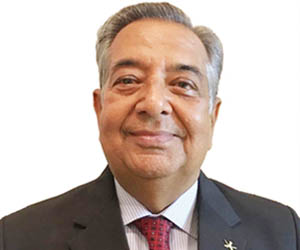

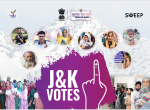

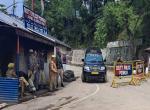
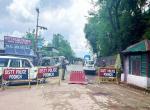

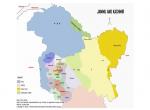

Post new comment